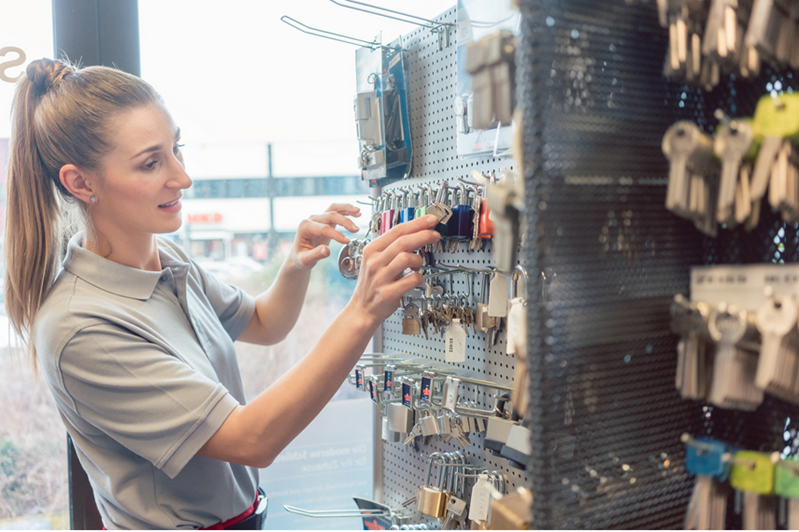Introduction
In today’s security landscape, protecting your home or business with the right type of lock is crucial. While standard locks offer a basic level of security, high-security and restricted locks provide enhanced protection against various threats. In this blog post, we’ll explore the differences between high-security locks, restricted locks, and standard locks, covering aspects like keys, keyways, bump resistance, patents, and the cost of duplication. At RBD Security in Washington DC, we offer key duplication, installation, and master keying services for all these lock types.
What are Standard Locks?
Standard locks, commonly used in residential and commercial properties, include basic pin tumbler and wafer locks. These locks provide a decent level of security for everyday use but can be vulnerable to certain types of attacks.
- Key and Keyway: Standard locks typically use a common keyway, making the keys easily duplicated at most hardware stores.
- Bump Resistance: Standard locks are often susceptible to bumping, a technique where a specially cut key is used to open the lock.
- Cost and Duplication: Standard keys are inexpensive and easy to duplicate, but this can also be a security drawback as unauthorized copies can be easily made.
High-Security Locks: An Upgrade in Protection
High-security locks are designed to resist various forms of forced entry, offering a superior level of protection. They are ideal for areas that require high levels of security, such as businesses and high-risk residential areas.
- Key and Keyway: High-security locks use unique and patented keyways that are difficult to pick. The keys are often more complex, featuring additional cuts or pins that align with specific configurations inside the lock.
- Bump Resistance: These locks are engineered to be bump-resistant, often including features like ball bearings or magnetic mechanisms that prevent traditional bumping techniques.
- Patents and Duplication: High-security keys are usually protected by patents, preventing unauthorized duplication. Only authorized locksmiths, like RBD Security, can duplicate these keys, adding an extra layer of security.
- Cost: While more expensive than standard locks, the investment in high-security locks is justified by the enhanced protection they offer.
Restricted Locks: Controlled Access and Key Duplication
Restricted locks provide controlled key duplication and increased security through the use of unique keyways and patented designs.
- Key and Keyway: Restricted locks use proprietary keyways that are not available in the open market. This makes it challenging for unauthorized individuals to duplicate keys.
- Duplication Control: Keys for restricted locks can only be duplicated by authorized locksmiths who have the appropriate legal agreements. This ensures that key control is maintained and that duplicates are only made for authorized individuals.
- Patents: Restricted locks are often covered by patents that restrict the production and sale of key blanks to authorized dealers only.
- Cost: Restricted locks and keys are generally more expensive than standard locks but offer better control over key duplication and access management.
Which Lock Should You Choose?
The choice between standard, high-security, and restricted locks depends on your security needs. High-security and restricted locks offer more robust protection and control, making them ideal for areas that require stringent security measures. Standard locks, while cost-effective, may not provide the level of security needed for high-risk environments.
At RBD Security in Washington DC, we provide comprehensive locksmith services, including key duplication, installation, and master keying for both standard and high-security locks. Whether you need to upgrade your existing security or install new locks, our expert team is here to help.
